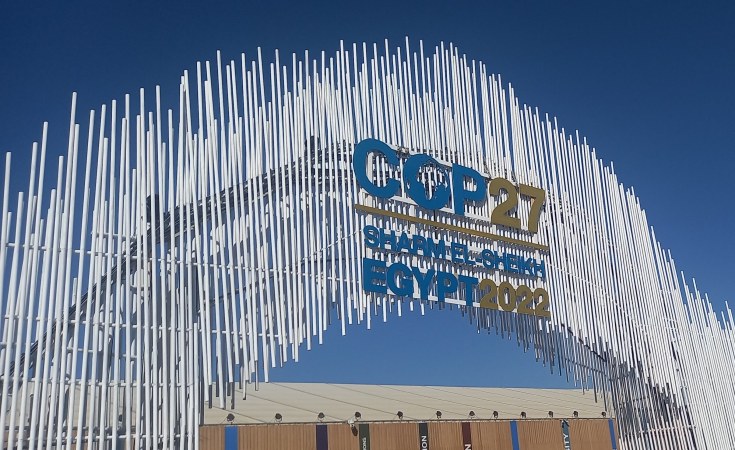African leaders must take advantage of the establishment of a 'Loss and Damage Fund' to help equip women who are vulnerable in their respective jurisdiction, Executive Director, Centre for Climate Sustainability Empowerment, Mr Kassim Hussein, has said.
He said the fund, which aims to provide financial assistance to nations most vulnerable and impacted by the effects of climate change, came about during the 27th Conference of the Parties of the UNFCCC (COP 27), with a view to building on previous successes and paving the way for future ambition to effectively tackle the global challenge of climate change.
Mr Hussein said this on Friday at a press conference on POST-COP 27-Women as critical Agents for effective action, organised by Abantu for development in Accra.
Loss and damage refers to the negative consequences that arise from the unavoidable risks of climate change, such as rising sea levels, prolonged heat waves, desertification, the acidification of the sea and extreme events, such as bushfires, species extinction and crop failures. As the climate crisis unfolds, these events will happen more and more frequently, and the consequences will become more severe.
Mr Hussein said the fund was a huge opportunity for leaders to come up with bankable ideas for women to access some of these funds.
"There a lot of women in our community with good initiatives but they are not able to relate it to climate change, they need requisite education to understand climate change and how their projects could be linked to it," he said.
He said governments and other stakeholders should target the grassroots to educate them in order to understand how climate change affects their activities, adding that some projects could help mitigate the effects of climate change.
"Currently, there are women who are into green cook stoves, which do not emit less carbon dioxide, in fact the carbon dioxide can be measured so such projects should be scaled up in order to access the funds," he said.
He said other women were into agro forestry at the community levels; hence support from funds would help enhance bulk production.
"Give them the requisite training to come out with some of these ideas and then direct those towards how they could go in for these available funds, there are climate change officers around to structure some of the programmes women are engaged in," he said.
Ms Grace Ampomaa Afrifa from Abantu said the forum would help amplify women's contributions to climate change adaptation and mitigation, while addressing the imbalances in women's low participation in decision-making processes and to ensure inclusive climate actions.
According to her, Ghana's climate change and its impacts persisted: incidents of changes in rainfall patterns, droughts in the Northern Regions, low crop yield, various incidents of flooding, including the recent Keta Tidal waves that washed away over 56 homes and displaced over 600.
"These impacts affect women and men differently. Due to the roles that women have been ascribed to, in the home, as caregivers, managers of households and providers of meals, as well as their reproductive roles further marginalise women in the face of climate change impacts."
"Women become more vulnerable and are less able to migrate in the events of displacement. These are coupled by the fact that women are less represented in decision making spaces, women are not very much involved in climate change discussions and have less access to resources to adapt to the impacts of climate change," she said.


